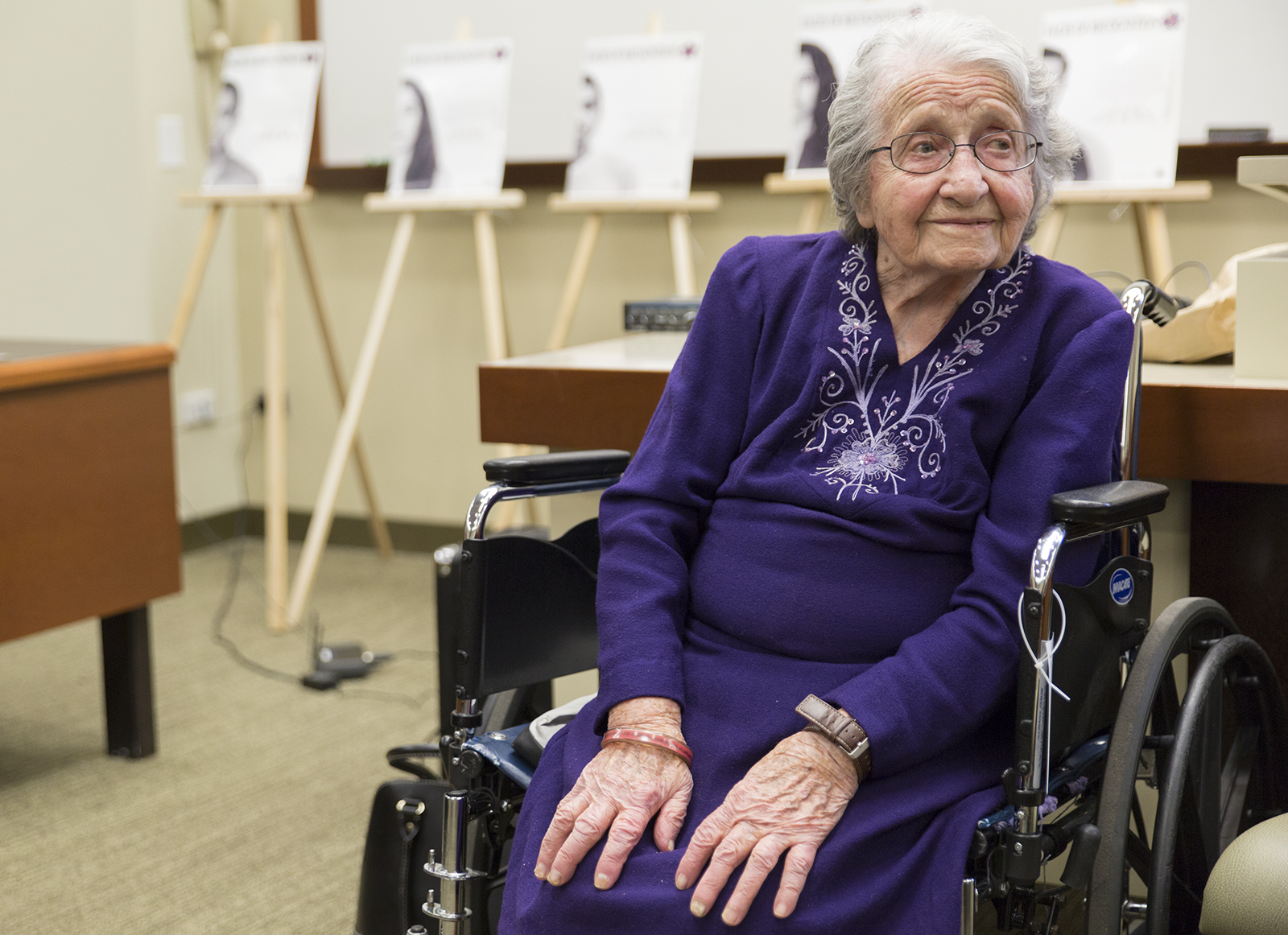Armenian Genocide Survivor shares her story

By Austin Ma
April 23, 2015 12:00 a.m.
The UCLA Armenian Students’ Association hosted Yevnige Salibian, a survivor of the 1915 Armenian Genocide, Thursday night so she could share her story and reflect on the 100 years since the genocide. Listen to Salibian and her granddaughter Talin Bahadarian share their thoughts on the journey and survival of the Armenian people.
TRANSCRIPT:
Ma: A hundred years ago this week, the Ottoman Empire, centered on present-day Turkey, began the mass killing of Armenians. Though known today by many historians as the first genocide of the 20th century, with an estimated 1.5 million deaths, Turkey firmly denies that genocide occurred. In memory of the victims, the Armenian Students Association here at UCLA hosted a conversation with Yevnige Salibian, one of the few remaining survivors of the Armenian genocide and her granddaughter Talin Bahadarian.
Bahadarian: There is no denying it, the denial is purely political.
Ma: That was Bahadarian. Bahadarian states that many countries, such as the United States and the United Kingdom, also currently do not recognize the killings as genocide. With many western forces stationed in Turkey, leaders tread carefully in referring to what happened, not wanting to anger their Turkish allies. Bahadarian explains further
Bahadarian: It was a systematic wiping out of a million and a half Armenians, purely because they were Armenian and they were Christian Armenian.
Ma: Because of this disconnect, many Armenians are still unable to come to terms with the Turks. Bahadarian draws upon the interaction between the Jewish community and Germany after the Holocaust, to relate to the situation Armenians are currently facing
Bahadarian: You don’t have the same level of animosity between the Jews and Germany, as you do between Armenia and Turkey and the Armenians and the Turks. The reason for that is because Germany admitted what they did. They asked for forgiveness in as sense by recognizing it. They made reparations so they made restitution. And that has opened the door for the healing to move on.
Salibian: He was seventeen years old, he was going to graduate from high school and be a doctor. I was crying and I was fighting with him. I loved him so much
Ma: Salibian, a first-hand witness of the brutality that occurred, recounts the tribulations that she faced during this time, including the death of her son. Despite the many sorrows she experienced, Salibian advocates for a Christian approach in dealing with the Turks
Salibian: I pray for the Turks to know Jesus. The one who accepts them. He gives peace, love, heavenly love.
Ma: Salibian has chosen to forgive the Turks as a whole despite there being no recognition. Whether to adopt a policy of forgiveness or to match grief with resolve is still up in the air. For many Armenians though, the massacres have left a scarring wound that has yet to be healed, let alone recognized by those who inflicted the mark. Until Turkish officials extend their hand for forgiveness though, the Armenian community continues to call on the nations of the world to bring justice for what was done. For Daily Bruin radio, This is Austin Ma.

